Jacksonville resumes curbside recycling after a 6-month suspension. How's it going?
By Mengyuan Dong
Residents of Jacksonville who sought outdoor refuge in the city’s parks during the last six months were often greeted by a not-so-pleasant scene: huge and ugly dumpsters overflowing with recyclable waste. Due to a labor shortage that halted curbside pickup, Jacksonville’s recreational sites had been converted into ad hoc waste transfer stations.
“It was ridiculous,” said Madeline Ross, a resident living downtown. “I stashed my recycling for months and didn’t know how long it’s going to be out of service.”
The situation was one faced by many cities around the U.S. as the recycling industry has faced a crisis caused by China’s ban on waste imports in 2018 and then compounded by labor issues during the pandemic. Jacksonville suspended its recycling services for six months to deal with the growing problems. It has taken steps to try and overcome the challenges and has now resumed its curbside recycling pickup in April. The lessons it is learning may be instructive for the country as a whole.
Since the services have resumed, Jacksonville is still considering long-term solutions to fix the recycling crisis as labor, cost, and capacity issues may remain significant.
“Jacksonville continues to grow, and the resources and operation required for big areas are tremendous,” said John Pappas, deputy director of Public Works Department.
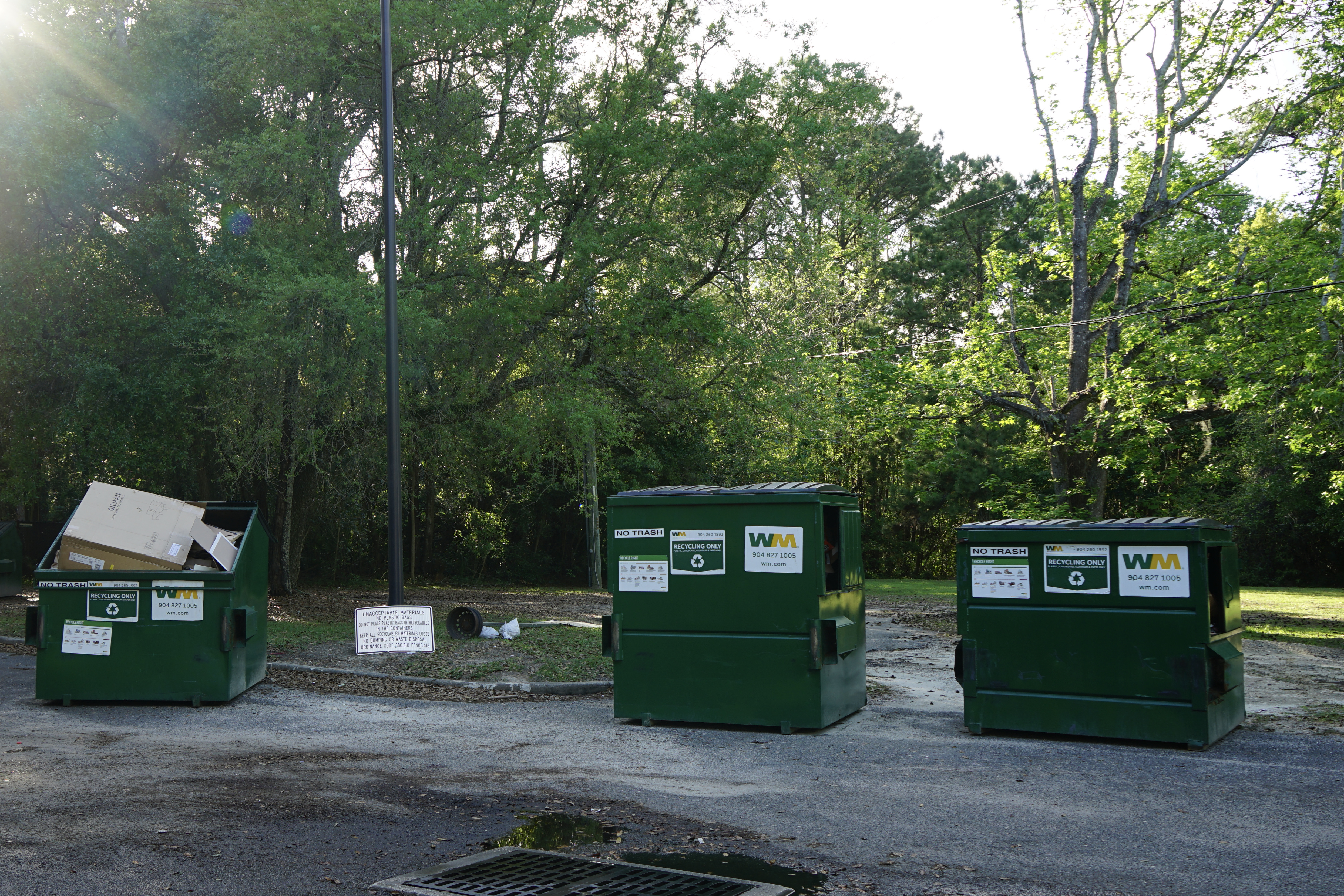
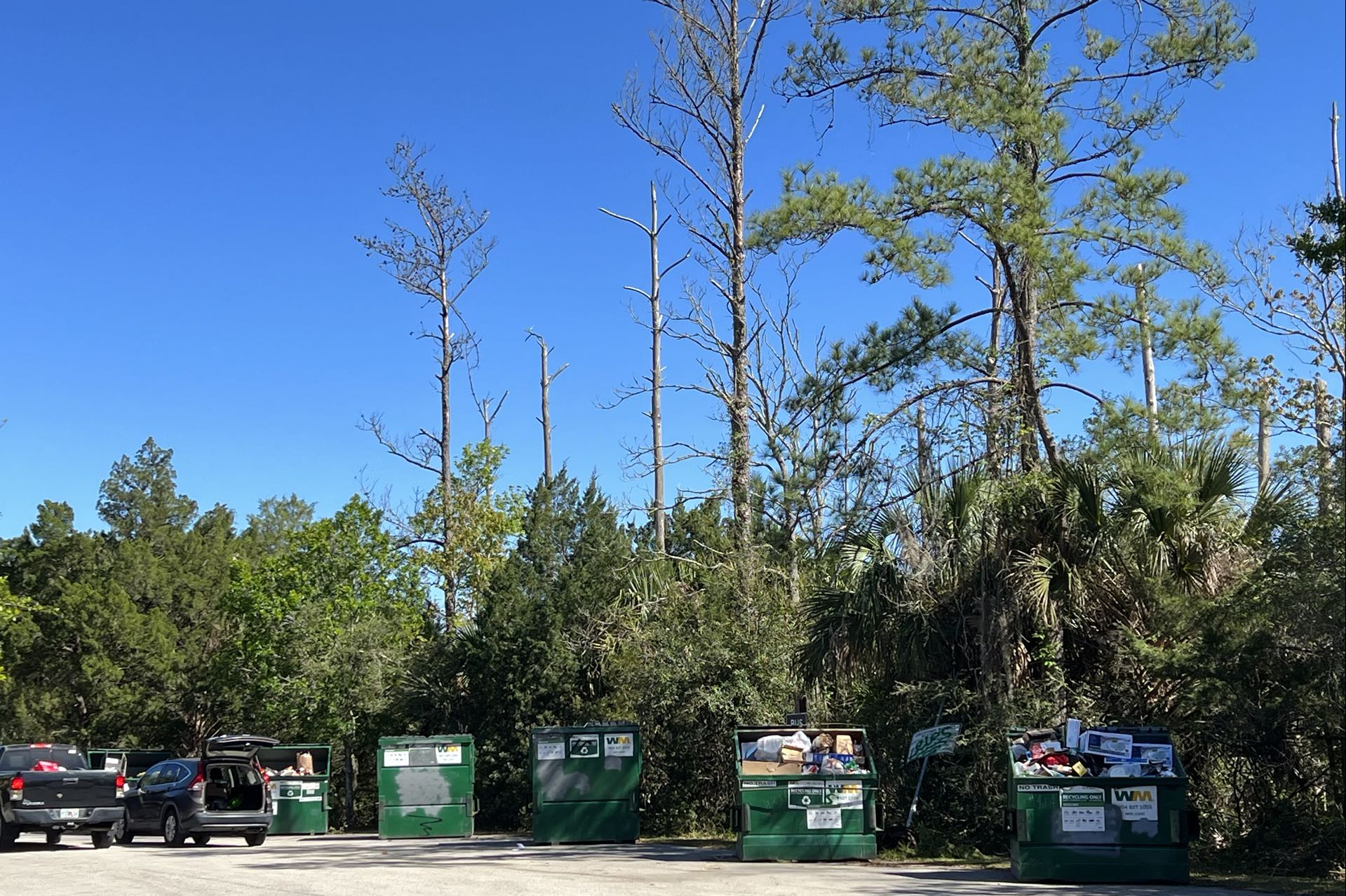
How the recycling crisis got so bad?
The delays in waste and recycling pickup already became a severe issue in Jacksonville last summer. Before the city had to halt the services last October, it received more than 3,300 resident complaints about missed waste pickups every week.
Grant Tucker, the founder of Con2nsequences, a local environmental advocacy group, said he followed behind recycling trucks at the time to make sure they would follow their routes and do the job.
“From what I saw, they were so busy trying to clean up the overflow surrounding the bins that they couldn’t even get to what was inside the bins,” Tucker said.
When the pandemic kept people at home, the amount of both waste and recyclables produced and waiting to be picked up at the curb went up tremendously. It became impossible for the city and its three waste-hauling companies to complete regular collection with even fewer truck drivers than before the pandemic. Garbage and recyclables piled up at people’s houses; some had to live with bins full of empty soda cans, plastic bottles, paper, and cardboard.
Last October, the American Trucking Associations estimated that the truck driver shortage would hit a historic high of over 80,000 drivers. With a national labor shortage, Jacksonville residents are not alone in suffering from waste woes. Places including Orangeburg in South Carolina, Clay County and Western Polk County in Florida also suspended their curbside recycling around the same time.
Actually, the recycling industry in the country had already undergone a dramatic shift before the pandemic. The U.S. had long relied on China as a place to cheaply dispose of plastic, mixed paper and other recyclable scraps. In 2018, however, China enacted the “National Sword” policy, restricting waste imports. According to the UN ComTrade Database, after China stopped accepting foreign waste, overall scrap plastic exports from the U.S. plummeted by 53 percent between 2017 and 2020, resulting in a crisis in domestic waste disposal.
MRFs were starting to stockpile the materials they had previously sent out, said Bret Biggers, a senior economist at the Institute of Scrap Recycling Industries. “They would hold on to it until they couldn’t hold on to it any longer. Then they had to landfill it.”
Some MRFs closed, and many cities halted curbside recycling due to cost issues. “The cities then knew that it costs money to recycle. It’s not free.”
Along with the current labor challenge, money remains a problem. Jacksonville hasn’t raised its solid waste fees for residents since 2010. Taxpayers still pay $12.65 per month, but the cost of collection and sorting has gone up, which increases the amount of debt the city takes on each year to loan cash from its general fund to the waste fund to meet the gap.
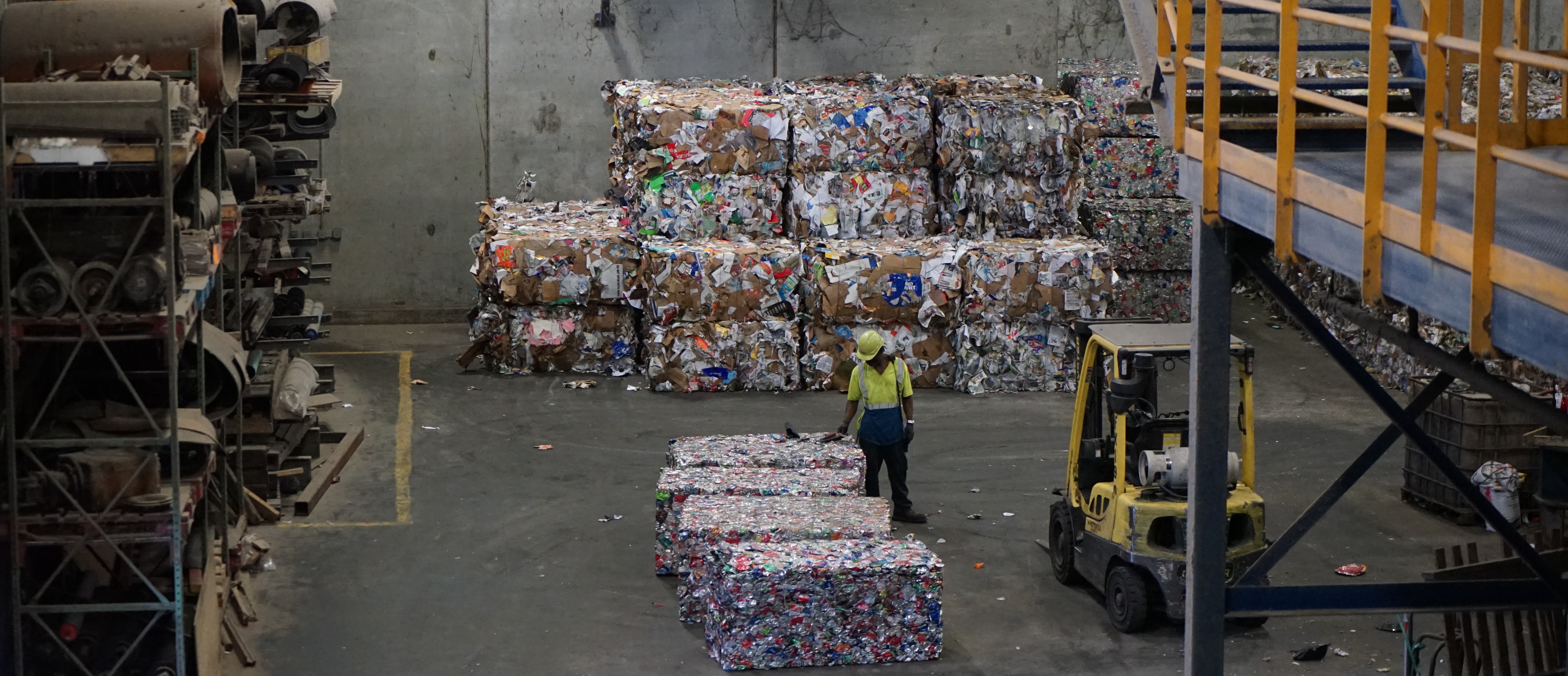
What the city worked on during the suspension?
As a temporary solution, the city opened 15 drop-off sites for people to drive by and dispose of their recyclables voluntarily. Most of the sites were located in city parks. People who visited these parks during the past six months would often see the beautiful scenery juxtaposed with the dirty, overflowing dumpsters right next to it.
Waste Management, one of the three waste-hauling companies serving the city, sent two trucks daily to go to all the drop-off sites and transport the materials to the city’s recycling center. Before the shutdown, the recycling center run by Republic Services received and processed around 170 tons of materials daily, and the number dropped to only 15 tons during the last six months.
A normal day at Jacksonville's recycling center. (Video by Mengyuan Dong)
Although the total amount of recycling awaiting processing was much less than before the suspension, the capacity of the 15 sites was insufficient for a city of more than 900,000 people.
Resident Madeline Ross said the sites near her place were so overflowing all the time that she had to drive to farther ones to check if the dumpsters there would be less crowded. Tucker, who lives in Queen’s Harbour neighborhood near the Atlantic Beach, said he went to a nearby drop-off site every week and saw plastics flowing into the waterways several times.
“I was really hurt,” Tucker said. “It truly is an injustice because we still pay tax money for these services.”
While the angry complaints from residents spread, the city and its contractors took the time to focus their work on recruiting. Picking up garbage is never glamorous, and it had always been hard for the industry to attract and retain labor, even before the pandemic exacerbated the challenge. Raising the pay and extending benefits seemed to be the most straightforward solution.
Since the suspension, Waste Management started to offer $5,000 signing bonuses to truck drivers, according to Dawn McCormick, director of communications at the company’s Florida office. The company also enhanced hourly pay by about 20 to 30 percent and extended the employees’ benefits to their spouses and children, such as free college education.
“It will be challenging to continue to staff up and we continue to hire drivers all the time, but hopefully we’re going to provide the level of service that the city and our customers require,” said McCormick.
Republic Services also has to increase the pay and benefits every year to retain about 70 sorters in the recycling center. “We’re competing with places like gas stations offering 15 to 18 dollars an hour, and it’s not the levels we’re at,” said Jason Graves, division manager of the company.
In addition to using similar strategies to hire workers, the city established a special committee on solid waste management to discuss tackling issues around waste reduction and recycling in the long run. The special committee meets twice a month to examine the ways to increase recycling efficiency.
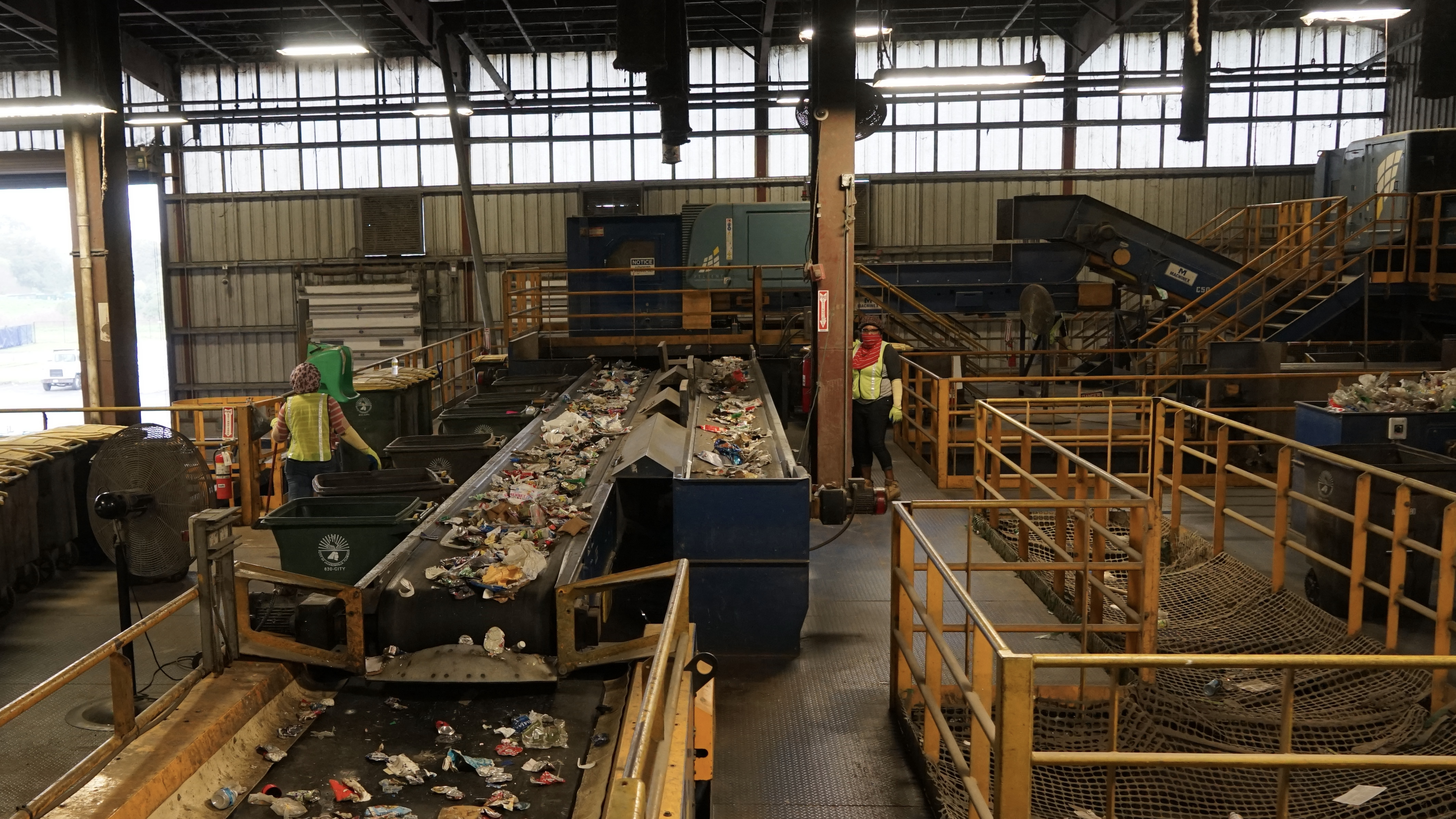

The services are back. What’s next?
“It’s incumbent upon them to return the services, and it’s a basic right that almost every city in the United States has,” Tucker said.
Residents like Kevin Smith were ecstatic that they got the recycling services back on April 4th. During the suspension, he went to the drop-off site at Riverside four times, getting rid of the cardboard and bottle waste he and his family produced at home.
“My only concern would be, when they said they were going to start up again, will they do a better job this time?” Smith said.
His concerns are not unfounded. Although all the three waste haulers said they were fully staffed this time, there still have been at least 1,587 missed recycling collections per week since April 4th. A spokesperson for Waste Management said they’ve missed some streets as the new drivers are still under training and not familiar with the equipment and routes.
The city has been considering several solutions to improve efficiency in the long run. During the special committee’s second meeting in March, council members discussed the possibility of not recycling glass anymore.
“We’re still able to recycle glass, but we don’t make money on it,” said Jason Graves at the recycling center. “The number one thing is that there has to be a market for it.”
Biggers said that the lack of a market for recycled glass is not limited to Jacksonville. Used glass is recyclable, but there’s not enough infrastructure to process it nationwide. It also weighs more than other materials and can cause harm to sorters at recycling facilities.
Another solution might help alleviate the problem -- a waste transfer station. Jacksonville has just one place to drop off garbage: the Trail Ridge Landfill on the far Westside of the city. If there could be a station in a more central location in the city, it would allow drivers to drop off their waste hauls and return to their routes quicker.
Industry practitioners are also calling on residents to make more efforts. Since the pandemic, and the attendant increased use of potentially recyclable materials, recycling facilities around the country have also seen an increase in contamination as people frequently put the wrong things in the recycling bins. According to Biggers, contamination at recycling facilities has gone from 5 to 10 percent previously, up to 15 to 30 percent now.
“If residents follow the rules of recycling, it’ll make the process much easier,” Graves at the recycling center said.
Since April, the recycling center has been processing about 160 tons a day, roughly equal to the number before the shutdown. However, some mistakes people are making may make their recycling efforts futile.
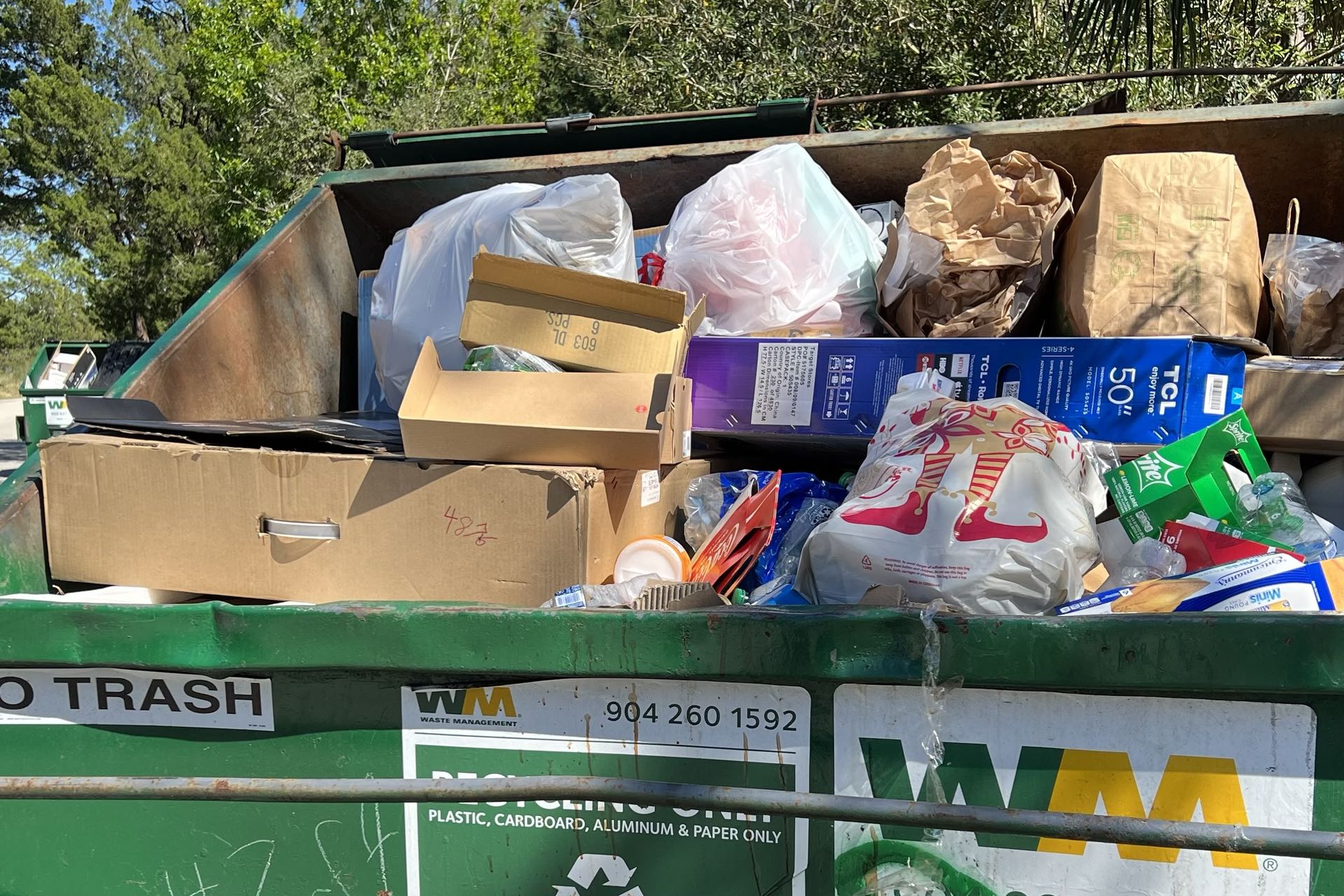
Graves has noticed that the most common mistake is putting recyclables in plastic bags. In his recycling center, the entire plastic bags would go into the trash as they don’t want workers to rip those bags during the sorting process for safety concerns. If the bags contain hypodermic needles, or other sharp objects like glass, opening it may cause harm to sorters even if they were equipped with cut-resistant gloves and sleeves.
Right now, the city is working with haulers and the recycling center to create an app that provides information about what’s recyclable or not.
“Even if we try to educate, it doesn’t matter if people don’t listen,” Graves said.